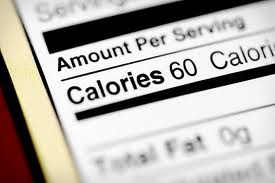
Along with regular exercise, being committed to keeping a healthy diet is one of the most important things you can do to contribute positively to your overall health. Reducing fat in your diet, for example, can lower your risk for certain cancers and certain heart diseases.
EATING SMART:
The most important elements of healthful eating are:
- To eat a daily diet that helps you either lose weight or keep your weight in the range that is considered “healthy” or “ideal” for your height and sex.
- To choose a diet that is low in saturated fat and cholesterol, and moderate in total fat intake.
- To eat foods high in fiber.
- To reduce the number of calories in your diet that comes from processed sugars.
- To choose and prepare foods with less salt.
- To drink the daily recommended amount of water: 8 to 10 cups (64 to 80 ounces) of water a day.
- If you drink alcoholic beverages, drink them in moderation (no more than 1 drink per day for women and no more than 2 drinks per day for men).
LOW FAT DIET:

- Less than 30 percent of your daily calories should come from fat.
- Broil, roast, bake, boil, steam, or microwave food; avoid fried foods.
- Season vegetables and meats with herbs and spices rather than using fatty sauces, butter, or margarine.
- Choose low-fat or skim milk, rather than whole milk.
- Substitute plain low-fat yogurt or low-fat cottage cheese whipped in a blender for sour cream or mayonnaise.
- Substitute egg whites for whole eggs when baking (substitute 2 eggs without yolks for every whole egg)
- Limit the number of egg yolks when scrambling eggs.
- Choose lean cuts of meat and trim off any visible fat.
- Remove the skin from poultry.
HIGH FIBER DIET:

- Eat whole-grain cereals and breads.
- Eat vegetables uncooked; if you cook them, steam only until they are just tender.
- Avoid peeling fruits and vegetables; when appropriate leave the skins on — the skins are high in fiber.
- Add beans to soups and salads.
- Snack on fresh fruits and vegetables or dried fruits (such as raisins or figs).
LOW CALORIE DIET:

- Read the label; look for any of the following types of sugar listed as the first or second ingredient (the most abundant ingredient in the product): corn syrup, sucrose, fructose, glucose, dextrose, maltose, lactose, maltodextrin, mannitol, sorbitol, malt syrup, honey molasses, or maple syrup.
- Substitute water or unsweetened beverages for sugared soft drinks.
- Snack on fresh fruits and vegetables or dried fruits rather than sugary snacks such as candies, cookies, cakes, and pies.
UNINTENTIONAL WEIGHT GAIN:
Unintentional weight gain is an increase in body weight that occurs when a person takes in more calories than the body needs or uses. Almost 40% of all Americans are overweight. As we age, our metabolism slows, which can cause weight gain unless we also reduce the amount of food we eat and get adequate exercise.
Take action by starting a proper diet and exercise program. Counseling may be helpful. Set realistic weight goals to maintain a healthy weight. Consult with a health care provider about specific measures.
Weight gain can also be a significant symptom of several endocrine diseases such as Cushing syndrome or hypothyroidism. It may also indicate a heart or lung disorder. A continued weight gain occurs with pregnancy, whereas a periodic weight gain may occur with menstruation. A rapid weight gain may be a sign of dangerous fluid retention.

Causes:
- Alcohol use
- Medications such as corticosteroids, cyproheptadine, antidepressants, and medicines that increase fluid retention.
- Cushing syndrome (a condition caused by long-term exposure to too much cortisol, a hormone that your adrenal gland makes)
- Eating too much and exercising too little.
- Emotional factors such as guilt, depression, and anxiety.
- High-carbohydrate, high-calorie diet.
- Hypothyroidism.
- Polycystic ovary syndrome (a condition in which there is an imbalance of a woman’s female sex hormones)
- Slower metabolism, which is normal with aging.
- Quitting smoking.
Contact your health care provider if the following symptoms occur along with the weight gain:
- Constipation.
- Excessive weight gain without a known cause.
- Hair loss
- Sensitivity to cold
- Swollen feet and shortness of breath
- Uncontrollable hunger accompanied by palpitations, tremor, and sweating
- Vision changes
What to Expect at Your Office Visit:

Your health care provider will perform a physical examination; measure your height and weight to calculate your body mass index (BMI); and ask questions about your weight gain, such as:
- Are you anxious, depressed, or under stress?
- Did you gain the weight quickly or slowly?
- Do you have a history of depression?
- Do you use alcohol or street drugs?
- Does the weight gain cause you much concern?
- Has your participation in social activities decreased?
- Has your physical activity been restricted due to illness or injury?
- Have there been changes in your diet or appetite?
- How much weight have you gained?
- What medications do you take?
- What other symptoms do you have?
- When did the weight gain begin?
Tests that may be done include:
- Blood tests including chemistry profile
- Measurement of hormone levels
- Nutritional assessment.
If weight continues to be a problem despite diet and exercise, talk with your health care provider about other treatment options, including medications and surgery. Weight gain caused by emotional problems may require psychological counseling. Talk to your health care provider about an appropriate diet and exercise program and realistic weight loss goals. If weight gain is caused by a physical illness, treatment (if there is any) for the underlying cause will be prescribed.
